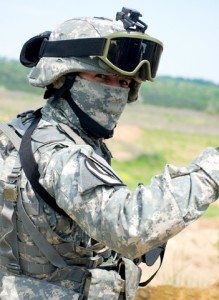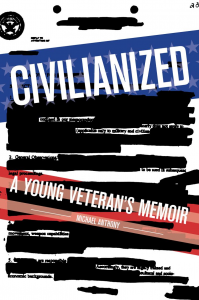 Thinking of the Army code, “I will never accept defeat. I will never quit.” brings to mind the famous story of the Battle of the Bulge, fought in World War Two. American forces were defending the town of Bastogne, Belgium, and found themselves suddenly surrounded by a vastly superior force of Germans. The Americans were cut off from food, ammunition and replacements.
Thinking of the Army code, “I will never accept defeat. I will never quit.” brings to mind the famous story of the Battle of the Bulge, fought in World War Two. American forces were defending the town of Bastogne, Belgium, and found themselves suddenly surrounded by a vastly superior force of Germans. The Americans were cut off from food, ammunition and replacements.
For many days, they held off the onslaught of the German hordes, until on December 22, 1944, a German party, under a flag of truce, delivered a long letter to the American commander, General Anthony McAuliffe. The letter boasted of the strength of the German Forces that trapped him in the city.
“To the U.S.A. Commander of the encircled town of Bastogne.
The fortune of war is changing. This time the U.S.A. forces in and near Bastogne have been encircled by strong German armored units. More German armored units have crossed the river Our near Ortheuville, have taken Marche and reached St. Hubert by passing through Hompre-Sibret-Tillet. Libramont is in German hands.
There is only one possibility to save the encircled U.S.A. troops from total annihilation: that is the honorable surrender of the encircled town.”
It went on to threaten even greater military action that would annihilate the US troops. The American commander would be given two hours to consider the terms of surrender, then one German Artillery Corps and six heavy A.A. Battalions would begin firing on the U.S. position.
The situation was hopeless and General McAuliffe had no doubt what he must do. It didn’t take him two hours to draft his reply to the German commander. He dictated the letter to his typist and his aide delivered it promptly to the German party. The Germans were baffled when they unfolded the letter and saw only one single word written there: “NUTS!” General McAuliffe was never a man to swear, and his reply was another way for him to say “Go To hell!” That one word summed up the Army code that General McAuliffe had learned as a young man at West Point; it was his way of saying, “I will never accept defeat. I will never quit.” He wasn’t jut about to surrender his troops to the German army, no matter how vastly greater or superior they claimed to be. This is why every American soldier memorizes these words, and it’s what turns them into a member of the toughest, most dedicated fighting force in the world—and it’s why General McAuliffe and his troops were able to hold the town until they were finally reinforced by the 4th Armored Division on December 26th.
It is because of this code that young men and women have carried on in difficult, frightening battles in Iraq and Afghanistan. But what about after the battles are over and these heroes put military life behind them? Can they use these words as a philosophy to guide them through the challenges of the rest of their lives?
How many people give up too easily on the most important things in life – love, wealth, health? How many relationships have failed because people find the compromise and dedication it takes to keep a marriage going is too hard? How can love survive if people give up too easily when things get rough? A soldier, or anyone who remembers the Army code and follows it, can work out the toughest marital problems.
When a former-soldier enters the business world, the code that he took to heart will carry him through when things start looking hopeless. The determination to never surrender doesn’t mean that the person needs to succumb to stubborn stupidity. If one thing isn’t working, a smart businessman will try something else, even if it means going back to school to learn a new trade. The important thing for him to remember is to never give up – never stop trying.
The same thing applies when it comes to his health. As the years roll by, it becomes harder and harder to keep in shape. The muscles of even the strongest athlete will wither, but the important thing is to keep the grit and have the guts to keep going. Changing life habits – dieting, smoking, drinking, drug abuse – all of them are hard but a soldier is trained to call on a team if he needs to and a soldier is trained to never quit trying.
No one is ever guaranteed success if he keeps trying, but everyone is guaranteed failure if he gives up. All of life is a struggle, and it’s meant to be. The soldier who carries the code “I will never accept defeat. I will never quit.” with him throughout his life will find the strength to face all obstacles, big or small.
To learn more about the military war-time experience check out the following book:
Related Posts:
What the Military Teaches About Self-Discipline
Military Time Management: CARVER
Target VS Mission: Smaller Goals VS Larger Goals





